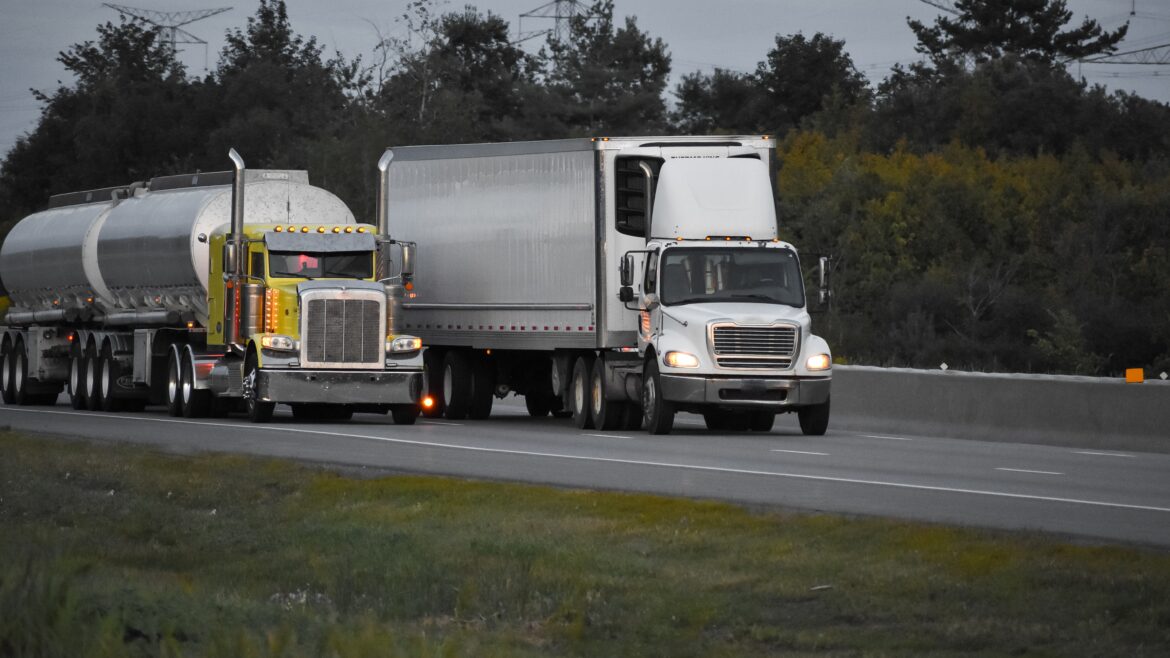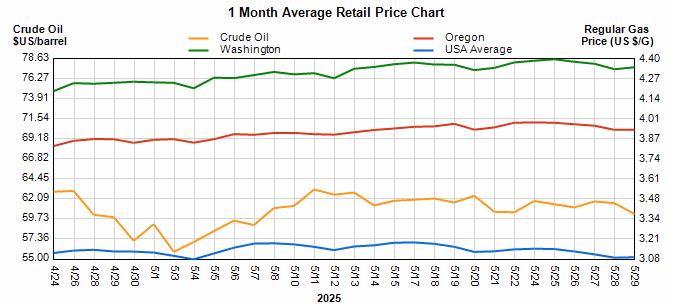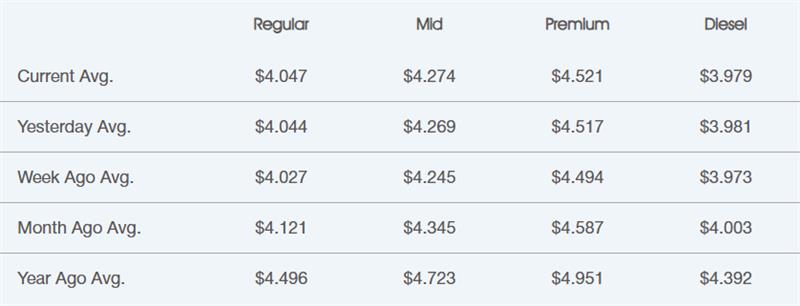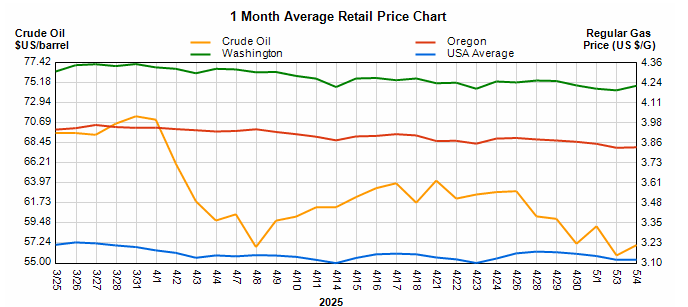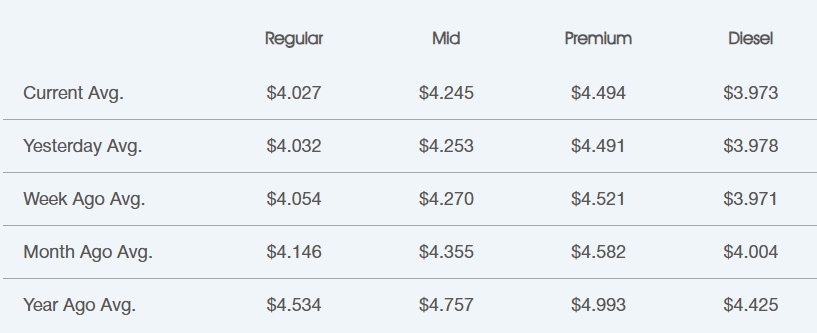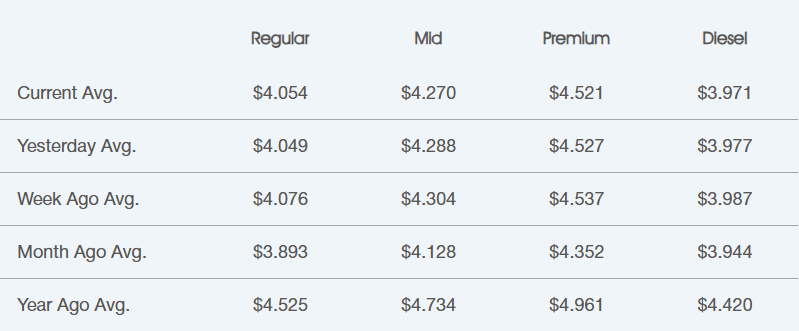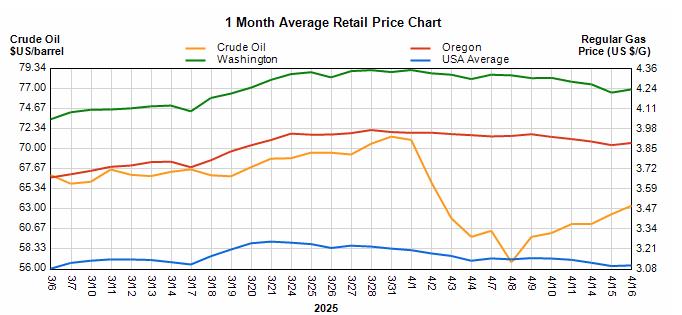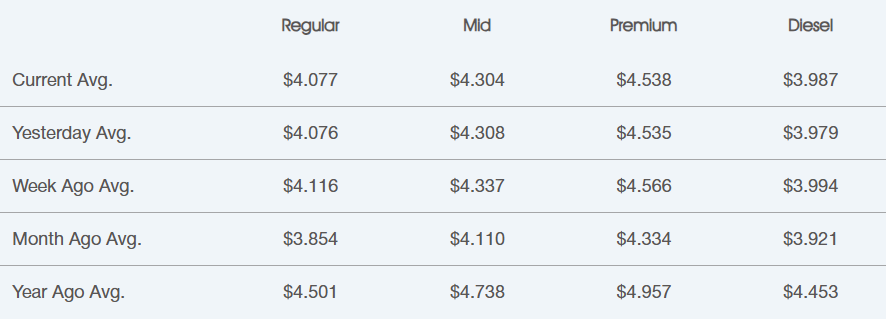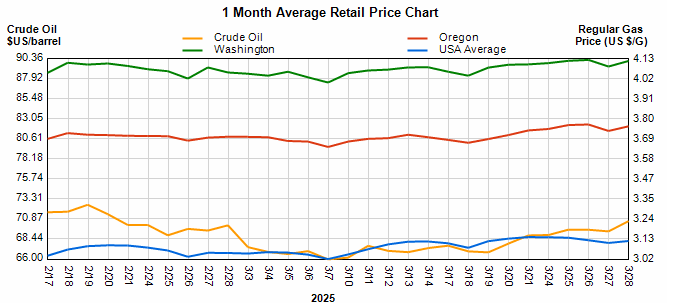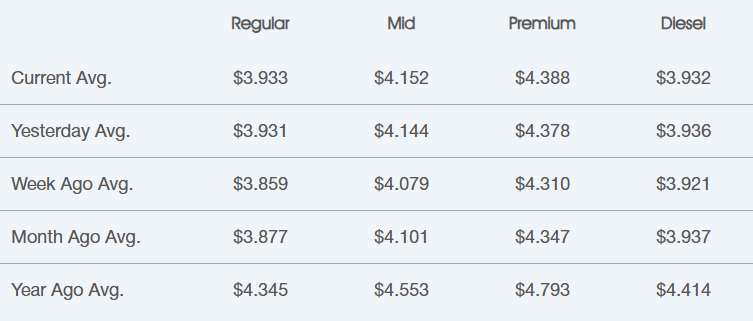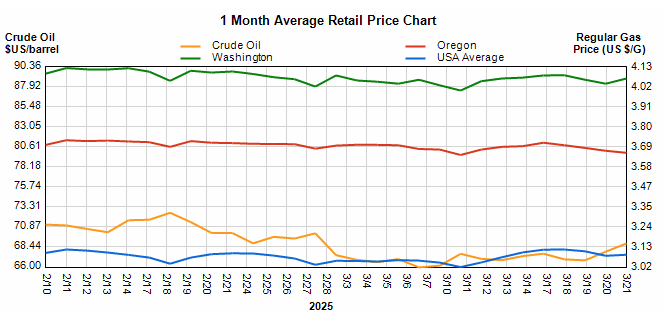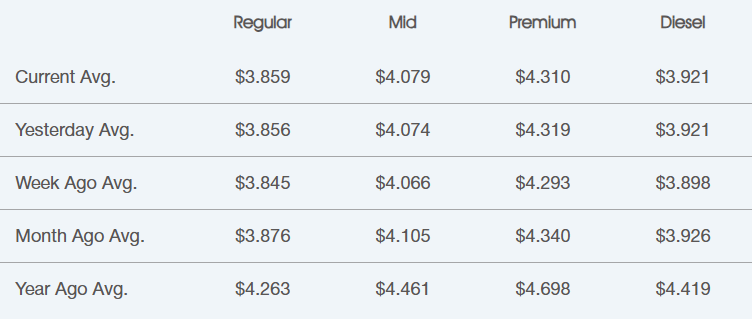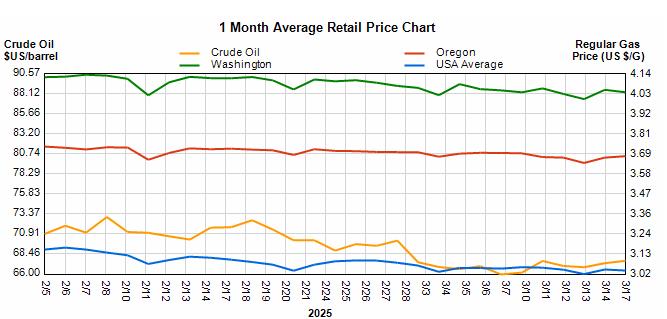Fuel Market Report: June 1st – June 7th, 2025
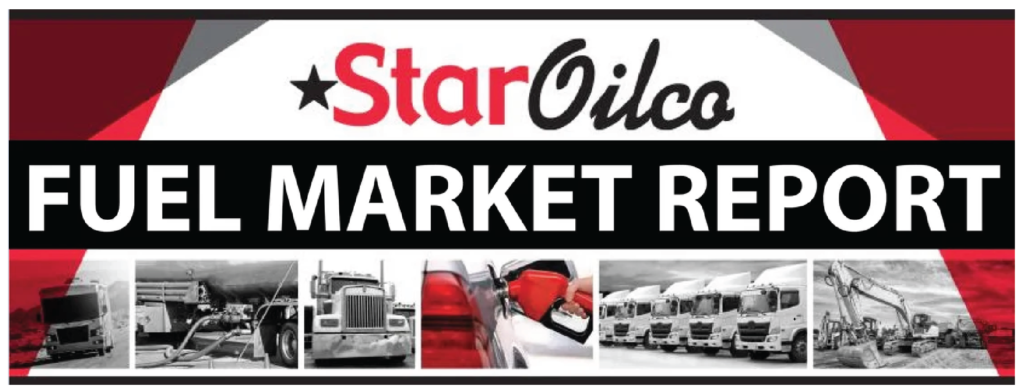
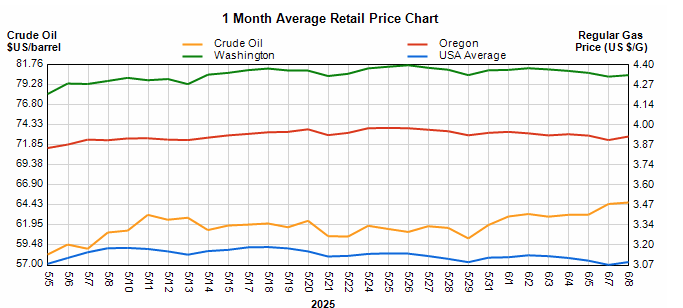
Wholesale Price Average 6/7/25
| Wholesale Low | Wholesale Avg | |
|---|---|---|
| E10 | $2.42 | $2.50 |
| B5 | $2.93 | $3.01 |
| B20 | $2.95 | $3.06 |
| R99 | $2.96 | $3.05 |
Average Retail Prices 6/7/25
| National | Oregon | Washington | |
|---|---|---|---|
| E10 | $3.12 | $3.97 | $4.36 |
| B5 | $3.51 | $4.15 | $4.68 |
Taxes
| Federal | State: OR | Local | State: WA | |
|---|---|---|---|---|
| Gas | $0.184 | $0.40 | $0-.13 | $0.494 |
| Diesel | $0.244 | $0.40 | $0-.13 | $0.494 |
Oregon Fuel Price Variance
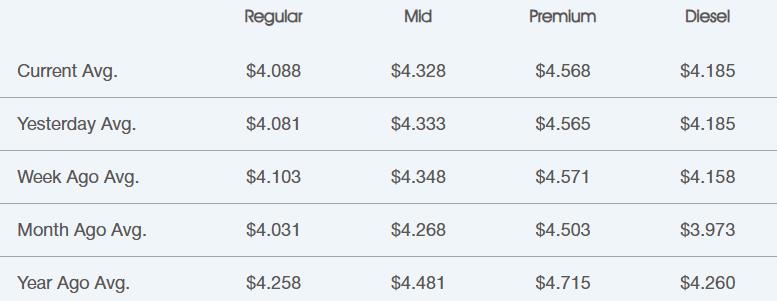
Fuel Market News
Diesel prices are up and gas is down slightly this past week, as fuel prices experience another week of mixed volatility. As we roll into June and the summer driving season, we can expect demand to stay high while supply may decline. Crude oil is trading just about $65 at a current price of $65.36/barrel on WTI Crude. The EU and the Trump administration are planning to impose new sanctions on Russia, including a $45/barrel price cap on Russian Oil, targeting the shadow oil fleet, LNG projects, and energy industry firms. These sanctions, along with production announcements from OPEC+, may lead to a much different Crude supply within the market. Some analysts are predicting $50/barrel Crude this year.
Oregonians may be in store for higher diesel prices this year with the end of Blenders Tax Credits, the introduction of the Producers Tax Credit & the Oregon Climate Protection Program going into 2025. For more on this report, visit the link below.
2025 Fuel Market Outlook: Oregon
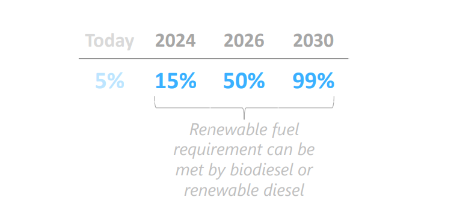
Important Note: Per the City Of Portland, “Distributors in the City of Portland are required to meet the minimum biofuel content requirements for all fuel they distribute beginning on May 15, 2024. All diesel fuel distributed to retail stations, non-retail dealers, or wholesale purchaser-consumers must include a minimum of 15% biofuel content, from either renewable diesel or biodiesel. This requirement increases to 50% on May 15, 2026, and 99% on May 15, 2030”.
Crude oil is trading above $65, at a current price of $65.36/barrel. This is $2.56/barrel higher than it was last week.
Crude oil is the main ingredient for gasoline and diesel. Per AAA, on average about 50% of what you pay at the pump is the price of crude oil, breaking down as 25% refining, 11% distribution & marketing, and 14% taxes—a helpful breakdown for consumers wondering why they are paying the prices that they pay. Crude Oil is currently trading at $65.36/barrel compared to $62.80/barrel last week and $71 a year ago.
Fuel prices result from a complex interplay of the factors mentioned above and other factors regionally. Additionally, prices may vary by specific regions within Oregon and Washington. For the most precise and up-to-date information on fuel prices and the causes for these price changes within your area, use the links below for AAA & GasBuddy.
If you have any questions, feel free to contact Star Oilco and speak to one of our fuel market advisors to discuss how the market can impact your business.


